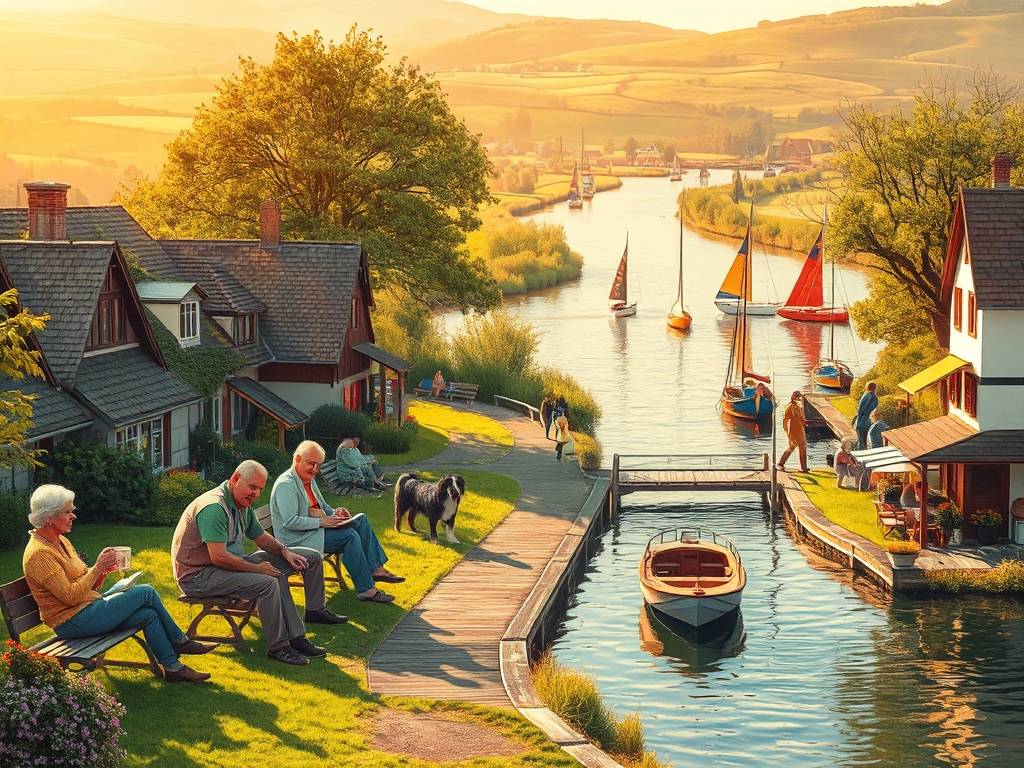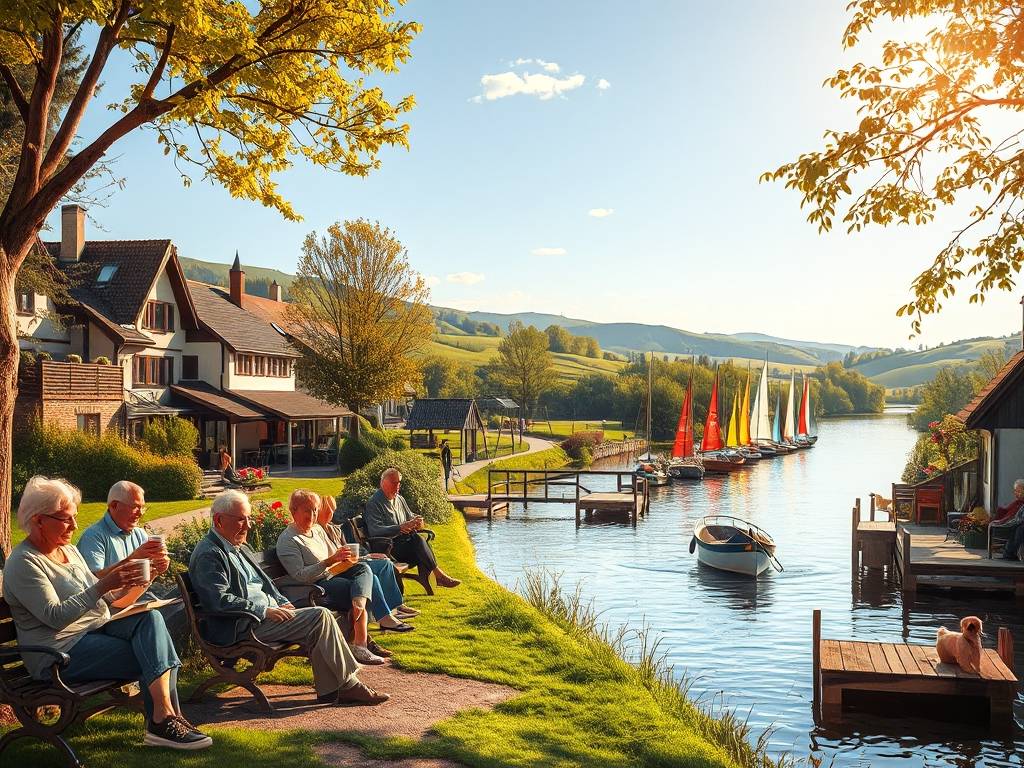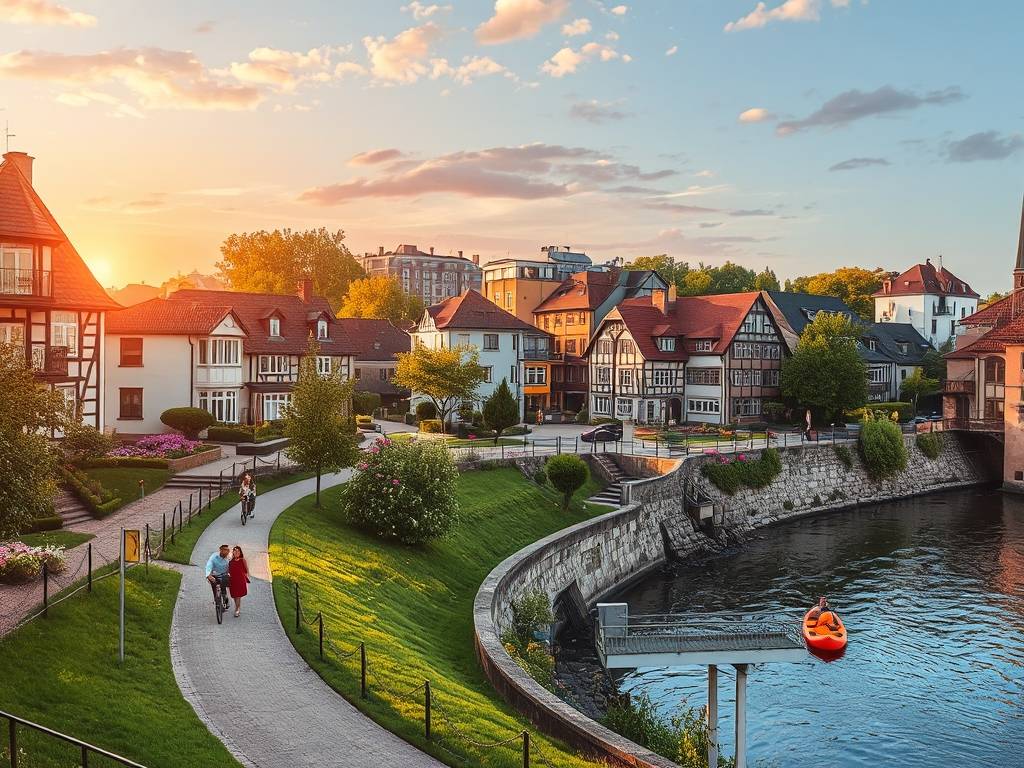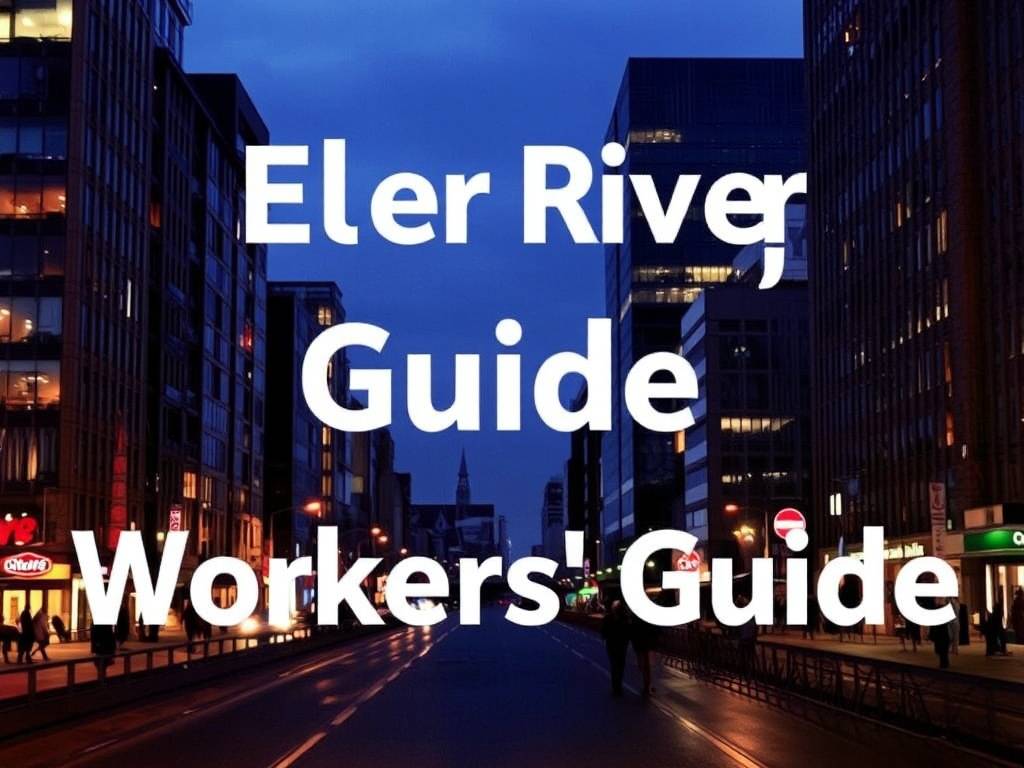Global Travel Information
Elbe River Retirees’ Guides: Living by the Water in Retirement
The Elbe River Retirees’ Guides: Your Blueprint for Living by the Water in Retirement
Imagine waking up not to the blare of an alarm clock, but to the gentle lapping of water against a riverbank and the soft morning light dancing on the surface. Your morning coffee is enjoyed on a balcony overlooking a timeless procession of ships, cyclists, and swans. This isn’t a vacation; it’s your everyday life in retirement along the Elbe River. For many, the dream of retiring by the water conjures images of oceanfront properties. Yet, the serene, culturally rich, and accessible allure of a great river offers a uniquely fulfilling lifestyle, and Germany’s Elbe River is a premier destination for this next chapter.
This comprehensive guide is designed to be your trusted companion, your one-stop resource for navigating the practicalities and pleasures of making this dream a reality. We’ll explore everything from choosing your perfect town to managing your budget and embracing the vibrant community, ensuring you have all the information for a smooth and joyful transition to your new life by the water.

Why the Elbe River? The Allure of a Riverside Retirement
The decision of where to retire is monumental. The Elbe River, flowing from the Czech Republic through Eastern Germany and out to the North Sea, presents a compelling case. It’s not just about the water; it’s about the quality of life it facilitates.
First, consider the pace. Life along the Elbe moves with the current—steady, purposeful, and peaceful. This is the ideal antidote to a high-stress career. The health benefits of living near water, often called "blue space," are well-documented, including reduced stress, improved mental well-being, and encouragement for an active lifestyle. The river itself is your ever-changing vista, a source of calm and constant inspiration.
Furthermore, the Elbe River region is steeped in history and culture without the overwhelming crowds of more traditional tourist hubs. You’ll find a deep sense of authenticity here. From the UNESCO World Heritage sites of Dresden's Baroque skyline to the medieval charm of Meissen and the modern maritime energy of Hamburg, world-class art, music, and history are just a short journey away. This makes it a perfect location for what we call cultural immersion in retirement, where learning and discovery remain a part of your daily routine.
Finding Your Perfect Spot: A Tour of Elbe River Towns for Retirees
The Elbe’s journey encompasses a diverse range of towns and cities, each with its own character. Your choice will depend on whether you seek urban excitement, small-town charm, or something in between.
-
Dresden: The Baroque Jewel. Often called "Florence on the Elbe," Dresden is for the retiree who craves a rich cultural life. The city is a phoenix risen from the ashes, with its stunning Zwinger Palace, Semper Opera, and rebuilt Frauenkirche. Neighborhoods like Blasewitz offer elegant riverside living, with beautiful old buildings and tranquil parks. The city boasts excellent healthcare facilities and a renowned university, creating a dynamic, intellectual atmosphere. It’s a larger city, but with distinct, walkable neighborhoods that foster a strong sense of community.
-
Meissen: The Porcelain Paradise. For those dreaming of a quieter, picture-perfect German town, Meissen is irresistible. Dominated by its stunning Gothic cathedral and Albrechtsburg Castle perched on a hill overlooking the river, the town is a labyrinth of cobblestone streets and historic buildings. Famous for its porcelain, the town offers a slower pace of life. It’s ideal for retirees who are artists, historians, or anyone who appreciates craftsmanship and a tight-knit community. The smaller scale also often translates to a more manageable cost of living.
-
Hamburg: The Maritime Metropolis. At the northern end of the river, Hamburg offers a completely different vibe. This is a city of water, defined by its enormous port, the Alster lakes, and countless canals. Retiring in Hamburg means embracing the energy of a global city while still enjoying extensive waterfront access. Areas like Blankenese, with its charming, hillside villas and stairway-lined streets, offer a village-like feel within the city. Hamburg provides top-tier medical care, incredible dining, and world-class entertainment, perfect for the active, urban retiree.
-
The Lesser-Known Gems: Wittenberg & Tangermünde. Don’t overlook the smaller towns. Lutherstadt Wittenberg is profound in its historical significance, offering a peaceful and contemplative environment. Tangermünde, often called the "North German Rothenburg," enchants with its perfectly preserved medieval old town. These locations offer deep authenticity and often the most affordable riverside property for seniors, providing an opportunity for a truly immersive German retirement experience.
The Nitty-Gritty: Financial and Practical Considerations for Retirees
Let’s address the most common questions head-on. A successful move requires careful planning beyond just falling in love with a view.
Cost of Living and Housing: Generally, the cost of living along the Elbe is lower than in major Western European capitals, but it varies. Hamburg is the most expensive, while towns in Saxony-Anhalt and Saxony offer greater affordability. The cost of retiring on the Elbe River is a key factor. Renting before buying is highly recommended. This gives you time to know the area and understand the real estate market. Look for apartments (Wohnungen) with a Balkon or Terrasse with a river view, or consider a house in a village just outside a main town. Engaging a local, English-speaking real estate agent (Makler) is invaluable.

Healthcare for Expats: Germany has one of the world's best healthcare systems. As a retiree, you will need to secure comprehensive health insurance. If you are from the EU, your European Health Insurance Card (EHIC) provides coverage, but long-term planning is needed. For non-EU retirees, you must demonstrate proof of health insurance coverage to obtain a residency permit. This typically means enrolling in the German public system if eligible, or taking out a private German health insurance plan. Researching "healthcare for expats in Germany" is a critical step that should not be underestimated.
Visas and Residency: For EU citizens, the process is straightforward. For non-EU citizens, including Americans, Canadians, and Australians, you will need to apply for a German National Visa for the purpose of retirement. This requires proving you have sufficient financial means to support yourself without working, and adequate health insurance. The process can be complex, so starting early and potentially consulting with an immigration lawyer is a wise investment for a stress-free retirement in Germany.
Building Your New Life: Community, Activities, and Integration
Retirement by the water is about more than just the scenery; it’s about building a fulfilling life.
-
Staying Active: The Elbe Cycle Path (Elberadweg) is one of Europe's most popular long-distance bike trails, running the entire length of the river. This is your new backyard gym. Walking, jogging, and paddleboarding are also readily accessible. Many towns have local rowing clubs or walking groups, providing excellent opportunities to meet people.
-
Combating Loneliness and Building Community: The fear of isolation is real when moving abroad. The key is to be proactive. Enroll in a German language course (Volkshochschule)—it’s the single best way to meet people and integrate. Join local clubs (Vereine) focused on your hobbies, whether it’s gardening, choir, or photography. Look for expat groups, but make a conscious effort to connect with locals. This proactive approach to building social connections after retirement is essential for long-term happiness.
-
Embracing the Culture: Part of the joy is immersing yourself in the local rhythm. Visit the weekly farmer’s market (Wochenmarkt), participate in town festivals like the Dresden Striezelmarkt Christmas market or Hamburg’s Hafengeburtstag (Port Anniversary), and become a regular at a neighborhood café. This daily engagement turns a foreign place into a home.
In conclusion, retiring along the Elbe River is an invitation to a life of profound peace, active engagement, and deep cultural richness. It’s a chance to trade the rush-hour commute for a riverside stroll, to replace routine with discovery, and to find a community that welcomes you to the water's edge. By carefully considering your personal preferences, managing the practical details with diligence, and embracing an open and curious mindset, you can transform the dream of a waterfront retirement into your beautiful, everyday reality. The river is waiting.
相关文章
- Elbe River Workers’ Guides: Commuting & Workspaces Near the River
- Elbe River Real Estate: Homes & Apartments Near the Banks
- Elbe River Property Prices: Cost of Living by the Water
- Elbe River Neighborhood Guides: Best Areas to Live
- Elbe River Schools: Education Options Near the Waterway
- Elbe River Daycares: Childcare for Families Near the River
- Elbe River Libraries: Read & Study by the Water
- Elbe River Community Centers: Local Groups & Activities
- Elbe River Sports Clubs: Join a Team Near the Banks
- Elbe River Fitness Classes: Work Out with River Views
发表评论
评论列表
- 这篇文章还没有收到评论,赶紧来抢沙发吧~


